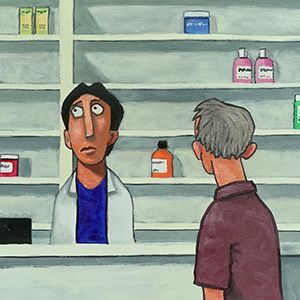cover story one
Navigating Drug Shortages
Preparedness and patient advocacy
By David J. Margraf, PharmD, PhD and Stephen W. Schondelmeyer, PharmD, PhD
The health care industry is faced with an alarming rate of drug shortages, posing significant challenges for physicians and patients alike. In July 2023, there were 309 drug products in shortage according to the American Society of Health-System Pharmacists (ASHP)—a record high for the last decade. A large share of these ongoing shortages are sterile injectable forms of critical acute drug products that are used in emergency situations. More drug shortages, however, are occurring for chronic and oral medications as well, such as metformin, ampicillin, liquid acetaminophen, and others.
cover story two
The New Noncompete Agreement Laws: What they mean for physicians
By Jennifer A. Forbes, JD and Benjamin J. Kramer, JD
On July 1, Minnesota became one of an increasing number of states to ban noncompete covenants in employment agreements (joining states such as California, North Dakota, Illinois).
Specialty Care
A Bold New Partnership: Joining rheumatology with orthopedics
By Paul Sufka, MD
In May, Twin Cities Orthopedics (TCO) announced that a group of 10 rheumatologists, including myself, were joining the practice. As a rheumatologist for almost 12 years in the Twin Cities area, including serving as our department chair at our former practice for the past five years, this transition marked a significant and exciting personal milestone.
Senior Care
Addressing Memory Loss: Advance planning and holistic care
By Joshua Wert
With a burgeoning senior population and longer life expectancies, new thought is needed for senior care models, none more so than in the treatment of Alzheimer’s and other forms of dementia. A recent report from the Alzheimer’s Association found that 92% of primary care physicians (PCPs) find that patients and their caregivers consider them to be front-line advisors on dementia care, and so being conversant with best practices is essential.












